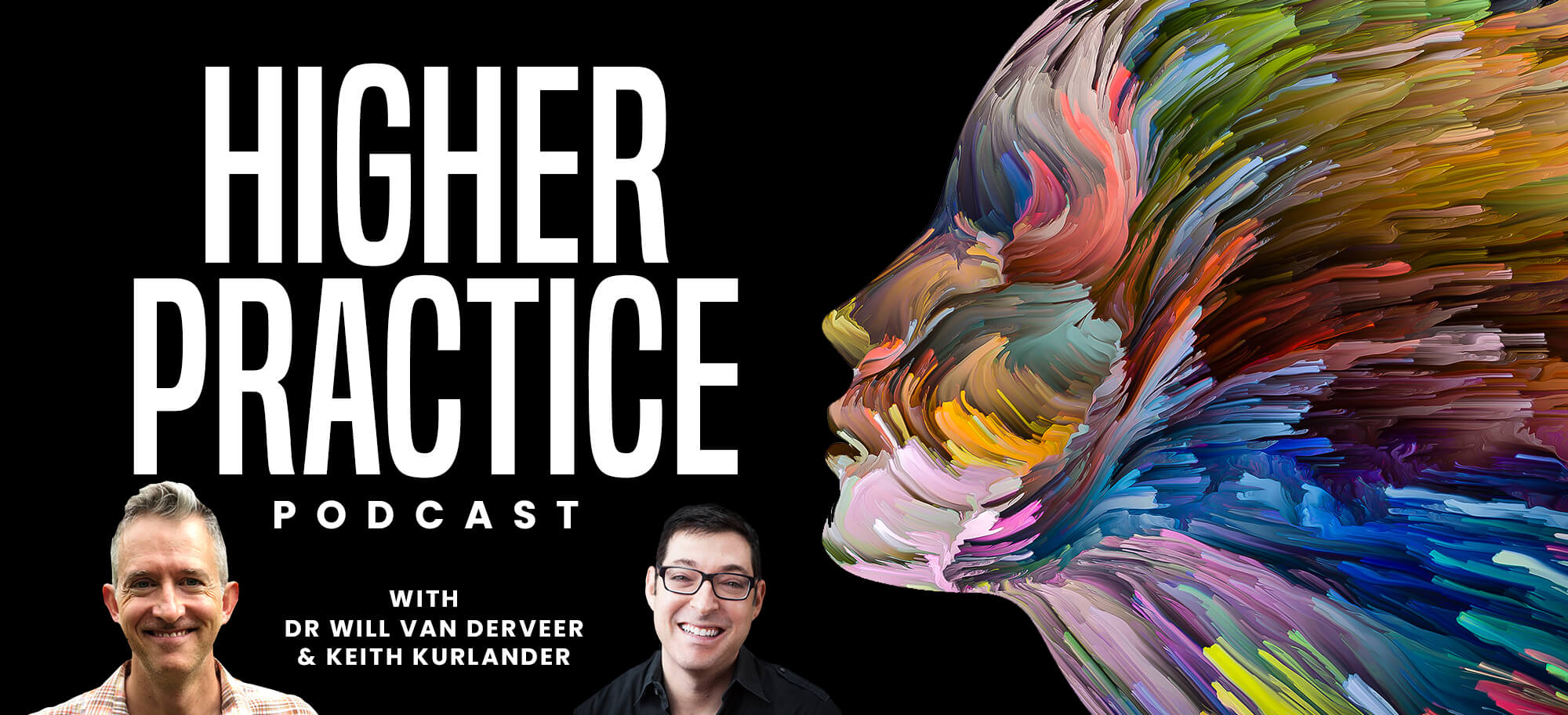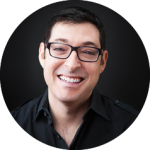Episode 43

Keith Kurlander, MA, LPC
It’s known that with school out of session and vacation days being used, it is hard to obtain steady clients, and a dependable income. A number of years ago, Keith grew tired of this feast and famine mentality driven by the summer caseload drop off. Believing it “just has to be this way” is driven by a mindset that keeps the bank account like a rollercoaster instead of on a steady incline. In this episode, Keith discusses 7 practical tips that he used to keep a consistent income and practice in the summer, without working noticeably harder. If you begin to plan in advance, it is easier to avoid the typical summer slump. Using these beneficial methods, you will no longer feel the stress that many clinicians anticipate during this time of year. Among other tools that Keith explains, if you plan early, increase local outreach, launch groups, or teach a summer course, you can say goodbye to to eating away at savings and the stress of waiting for the slump to come to an end.
Episode 42

Keith Kurlander, MA, LPC
How do we know if we are in a state of mental health or illness? In modern clinical psychology, the definition of “mental health” and “mental illness” is not a stable, set definition; but it is an important one. In fact, a true working definition of mental health has never really been defined.
In order to truly understand how to help people reach their potential in all areas of life, it’s important to understand the spectrum of a healthy mind and how it becomes disorganized.
Keith explains how mind and body fluidity can greatly affect our mental health, along with the role relationships play in the process. He explores the impact of physical imbalances on the mind, as well as how relationship attachments interact with the mind. Keith also explores the socio-political arena of mental health and illness and why a new working definition of mental health is necessary for our society.
Episode 41

Keith Kurlander, MA, LPC
Keith recognizes that forgiveness is most often used as a way for people to move on from tough situations in life. In some case that actually seems to be true. However, after speaking with many clients over the years and a lot of exploration around the topic with other professionals, he has identified some myths about forgiveness, how it can hurt more than help, and other ways to move on from troubles in the past.
Forgiveness seems altruistic by nature. At first glance it appears to be an act of kindness. But what if it was more self-serving than one might think? When speaking with your clients, it is very important to dive into their history in order to see if there are underlying resentments. Focusing on the reasoning behind forgiveness–such as underlying resentments–can help people stop a perpetual loop of blame and move them into a place of empowerment.
Even though forgiveness in some cases seems to be useful, it often just perpetuates a cycle of pain. Can you imagine a life without needing to forgive anyone, as if the power to move on from past hurts was truly in your own hands?
Episode 40

Dr. Gabor Maté
Our guest, Dr. Gabor Maté, a renowned speaker and bestselling author, sheds light on the true nature of addiction, and why so many of us fall victim to this harsh reality.
Society has created an ideal around feeling “normal” and finding “mental sanity,” when we do not even have a clear definition of what“mental sanity” is. So many people struggle with emotional pain on a day-to-day basis. When that pain becomes overwhelming, especially from early childhood trauma and attachment injuries, it’s human nature to try and escape that pain until it gets resolved.
Gabor describes his clinical experience of helping those struggling with addiction, and how he concluded that addiction is always a strategy to escape from emotional pain, trauma, and attachments injuries during childhood. He speaks authentically and shares about his experience of addiction, while giving hope with the basic aspects that help people heal.
Episode 39

Keith Kurlander, MA, LPC
Keith Kurlander, CEO of Higher Practice, in a fierce and loving dialogue, joins his inner circle in a conversation about community, relationships, love, mental health, and spirituality. Guests include The Smart Couple Podcast Founder, Jayson Gaddis, a Boulder, Colorado Men’s Group leader, Reuvain Bacal, and a thought leader in Integrative Psychiatry, Dr. Will Van Derveer.
In this episode, Keith and his inner circle explore the values of supporting and challenging each other, how to navigate the most difficult moments in life together through personal examples, and ways in which powerful friendships lead to personal and professional growth. When those around you have visions that align with your own, it automatically sheds light on your purpose, which leads to a more fulfilled life.
Episode 38

Keith Kurlander, MA, LPC
So many people claim they want to be happy, but so few people ever attain it. Keith Kurlander, CEO of Higher Practice, explains why it’s impossible to achieve the stereotypical version of happiness and redefines it into something that’s not only achievable, but something worth fighting for.
Many people feel as though they have tried everything they can in order to maintain a happy existence, but most people report dissatisfaction on a regular basis. It is easy to feel hopeless, and as if there is no coming out of your unhappy slump when it kicks in. However, when three essential components are brought back into balance, you can feel focused and clear, and obtain experiences of happiness and joy.
In this episode, Keith goes into detail about these three components and some tools and tips to help you and your clients experience a truer sense of happiness. There is a secret to happiness, but it begins with understanding and and changing your mindset so you can live in a healthy way.
Episode 37

Keith Kurlander, MA, LPC
Keith Kurlander, CEO of Higher Practice, understands the difficulties of building a private practice from the ground up. After plenty of trial and error, he’s discovered a number of great resources to make the process as stress free as possible.
Building a private practice can be demanding. Most mental health clinicians would agree that it can consume way too much time and money. When building a practice, there are a number of great online technologies out there to manage everything yourself in a relatively short amount of time without breaking the bank.
This episode is all about doing your private practice from start to finish by yourself (DIY)He explains a more savvy method to every bump that mental health clinicians face in regards to the backend processes. Keith discusses the latest tools for bookkeeping, taking payments, note taking, building your community, website making, social media, and simplifying the mass email process.
Using these methods, the transformation of your private practice will be easier and faster than ever before.
Episode 36

Keith Kurlander, MA, LPC
Keith Kurlander, CEO of Higher Practice, explains how martial arts transformed his life and ways in which it can help certain clients attain integration. He also acknowledges why particular systems and instructors of martial arts can cause more damage than growth and what to look for when suggesting this type of intervention.
Although martial arts might seem contrary to many forms of the therapeutic process, the overall teachings within both disciplines have to do with integrating the body, mind and relationships in your life. Martial arts, like therapy, embraces teaching people the hard and soft skills to feel confident and connect with all elements that life presents to us.
Keith will shed light on the types of mental health issues that respond particularly well to martial arts, and, also the different types of systems of martial arts available. As a black belt in the To Shin Do system, which is based in the teachings of the Japanese Ninja, he shares his personal experience of how martial arts translates well beyond self-defense as a way of being integrated in the world. He explains the elemental system in this martial art, how it leads to growth and healing during each stage, and the power behind this ancient technology.
By understanding the basics elements of earth, water, wind, fire and the void, people can live more freely and feel whole. However, martial arts may not be for everybody, which it is why it’s key to only recommend it to clients with a specific purpose in mind.
















